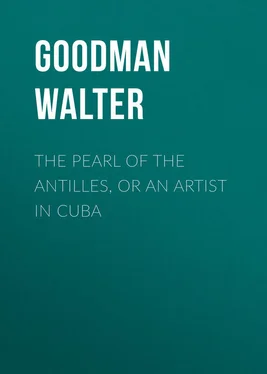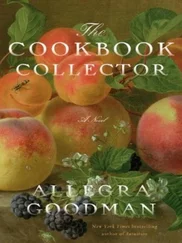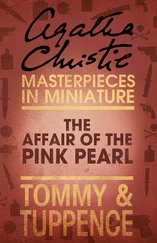Walter Goodman - The Pearl of the Antilles, or An Artist in Cuba
Здесь есть возможность читать онлайн «Walter Goodman - The Pearl of the Antilles, or An Artist in Cuba» — ознакомительный отрывок электронной книги совершенно бесплатно, а после прочтения отрывка купить полную версию. В некоторых случаях можно слушать аудио, скачать через торрент в формате fb2 и присутствует краткое содержание. Жанр: foreign_antique, foreign_prose, Путешествия и география, на английском языке. Описание произведения, (предисловие) а так же отзывы посетителей доступны на портале библиотеки ЛибКат.
- Название:The Pearl of the Antilles, or An Artist in Cuba
- Автор:
- Жанр:
- Год:неизвестен
- ISBN:нет данных
- Рейтинг книги:4 / 5. Голосов: 1
-
Избранное:Добавить в избранное
- Отзывы:
-
Ваша оценка:
- 80
- 1
- 2
- 3
- 4
- 5
The Pearl of the Antilles, or An Artist in Cuba: краткое содержание, описание и аннотация
Предлагаем к чтению аннотацию, описание, краткое содержание или предисловие (зависит от того, что написал сам автор книги «The Pearl of the Antilles, or An Artist in Cuba»). Если вы не нашли необходимую информацию о книге — напишите в комментариях, мы постараемся отыскать её.
The Pearl of the Antilles, or An Artist in Cuba — читать онлайн ознакомительный отрывок
Ниже представлен текст книги, разбитый по страницам. Система сохранения места последней прочитанной страницы, позволяет с удобством читать онлайн бесплатно книгу «The Pearl of the Antilles, or An Artist in Cuba», без необходимости каждый раз заново искать на чём Вы остановились. Поставьте закладку, и сможете в любой момент перейти на страницу, на которой закончили чтение.
Интервал:
Закладка:
'What!' he exclaims, approaching me in what seems a threatening attitude. 'Is it possible that you have any tobacco, and that you are going to smoke some here?'
Lest the Indian should be no smoker himself and dislike the odour of tobacco, I tell him that if he objects, I will postpone my harmless whiff until after captivity.
He does object; but after contemplating my scanty supply of cigarettes as I restore them to my pocket, he observes with a sigh:
'I was once an inveterate smoker!'
'Till you very wisely gave up the vice,' I add.
'No!' says he, 'I did not give it up. It was my accursed captors who withheld it from me. I have not smoked for many long months, and I would often give ten years of my life for one little cigarette!'
'Try one of mine,' I suggest, extracting the packet again which alas! contains my last four.
'Gracias; no,' he replies, 'I shall be depriving you, and you will find cigarettes scarce in these quarters!'
'If you are a true Cuban,' I observe, 'you will remember that it is next to an insult to refuse a man's tobacco. Besides, if you object to my indulging in the luxury upon the plea that the delicious perfume is unendurable in another, both of us will be deprived of the pleasure!'
'You are right,' says the Indian, 'then I will take just one.'
So saying, he accepts the little paper squib which I offer, and carefully divides the contents into two equal parts; explaining, as he does so, how he intends to reserve one half of the tobacco for another occasion.
While thus engaged I am reminded of the awful fact that I have no means of igniting our cigarettes. When I mention this unfortunate circumstance to my companion, he smiles triumphantly, and after placing his ear to the door in melodramatic fashion, proceeds to raise a particular brick in the floor of our apartment under which at least half a dozen matches are concealed.
'These matches,' he remarks, 'have been treasured in that hole ever since I came to lodge in this jail.'
'Have you resided here long?' I inquire.
'It has appeared long to me,' he answers, 'eighteen months, more or less; but I have no record of the date.'
'You must have found the hours hang heavily on you,' I remark, 'or, maybe, you have a hobby like the political prisoners one reads of. You have a favorite flower somewhere? Or, perhaps, you are partial to spiders?'
'There are plenty of gigantic spiders here,' he replies, 'together with centipedes and scorpions; but whenever one of those reptiles crosses my path – I kill it!'
When my fellow-captive learns my nationality, his surprise and pleasure are very great.
'I like the English and Americans,' says he, 'and I would become one or the other to-morrow, if it were possible.'
'You are very kind to express so much esteem for my countrymen,' I say.
'It is not so much your countrymen,' he says, 'as your free country with its just and humane laws, which every Cuban admires and covets.'
I remind him that, under existing circumstances, I am no better off than he is, though to be sure as a British subject, my consul, who resides in Santiago, will doubtless see me righted.
The Indian is, however, of a different opinion. He assures me that my nationality will avail me nothing if I have no interest with some of the Spanish officials. He gives me instances to prove how it is often out of the power of a consul to assist a compatriot in difficulties.
'Not long since,' says my friend, 'a marine from your country, being intoxicated, and getting mixed up in a street brawl, was arrested and locked up with a crowd of insubordinate coolies and Spanish deserters. His trial was, as usual, postponed. In the meanwhile, the jail had become overcrowded by the arrival of some wounded soldiers from San Domingo, and your countryman was shipped off with others to another prison at Manzanillo, where he was entered on the list of convicts, and has never been heard of since.'
'In this very jail,' continues the Indian, 'are a couple of American engineers, both of whom stand accused of being concerned in a negro conspiracy, and who have been locked up here for the last six months. They are ignorant of the Spanish language, have mislaid their passports, and have been denied a conference with their consul, who is, of course, unaware of their incarceration.'
I make a mental note of this last case, with a view to submit it to the proper authority as soon as I shall be able to do so.
My attention is presently arrested by a sound which reminds me of washing, for in Cuba this operation is usually performed by placing the wet linen on a flat board, and belabouring it with a smooth stone or a heavy roller. My companion smiles when I give him my impression of the familiar sounds, and he tells me that white linen is not the object of the beating, but black limbs! An unruly slave receives his castigation at the jail when it is found inconvenient to perform the operation under his master's roof. No inquiry into the offence is made by the officers of justice; the miscreant is simply ordered twenty-five or fifty lashes, as the case may be, by his accuser, who acts also as his jury, judge, and occasionally – executioner!
Whilst listening to the unfortunate's groans and appeals for mercy, I watch the proceedings of a chain-gang of labourers, some twenty of whom have left the jail for the purpose of repairing a road in an adjacent street. They are dressed in canvas suits, numbered and lettered on the back, and wear broad-brimmed straw-hats. Each man smokes, and makes a great rattling of his chains as he assists in drawing along the heavy trucks and implements for work. A couple of armed soldiers and three or four prison-warders accompany the gang; the former to keep guard, the latter to superintend the labour. Some of the prisoners sell hats, fans, toys, and other articles of their own manufacture as they go along. One of these industrious gentlemen has entered, chains and all, into a private house opposite, and while he stands bargaining with a highly respectable white, his keeper sits, like Patience, on the doorstep smoking a cigar.
I withdraw from the window to meet my jailer, who has brought – not my freedom? no; my food. It is the first meal I have tasted for many long hours, and I am prepared to relish it though it be but a banana and Catalan wine.
These are, however, the least items in the princely fare which the jailer has brought. The whitest of tablecloths is removed from the showiest of trays, and discloses a number of small tureens, in which fish, flesh, and fowl have been prepared in a variety of appetising ways. Besides these are a square cedar-box of guava preserves, a pot of boiling black coffee, a bundle of the best Ti Arriba cigars, and a packet of Astrea cigarettes; all served on the choicest china. This goodly repast cometh from La Señora Mercedes, under whose hospitable roof I have lodged and fed for many months. Doña Mercedes has heard of our captivity, and, without making any enquiry into the nature of our misdemeanour, has instantly despatched one of her black domestics with the best breakfast she can prepare.
The Indian assures me that the admittance into jail of such a collation augurs well. I have doubtless friends who are using their influence with the officials in my behalf, and, in short, he considers my speedy release a certainty.
'Usted gusta?' I invite my companion to share the good things, but he excuses himself by saying that, with his present prospects, he would rather not recall the feeling of a good meal. He, however, partakes of some of my coffee, the odour of which is far too savoury for his self-denial, and helps me with the tobacco.
Breakfast over, I take a siesta on half the furniture, and after a few hours' delicious oblivion am awakened by the jailer, who comes with the welcome news that the court is sitting, and that my presence is required.
Читать дальшеИнтервал:
Закладка:
Похожие книги на «The Pearl of the Antilles, or An Artist in Cuba»
Представляем Вашему вниманию похожие книги на «The Pearl of the Antilles, or An Artist in Cuba» списком для выбора. Мы отобрали схожую по названию и смыслу литературу в надежде предоставить читателям больше вариантов отыскать новые, интересные, ещё непрочитанные произведения.
Обсуждение, отзывы о книге «The Pearl of the Antilles, or An Artist in Cuba» и просто собственные мнения читателей. Оставьте ваши комментарии, напишите, что Вы думаете о произведении, его смысле или главных героях. Укажите что конкретно понравилось, а что нет, и почему Вы так считаете.












